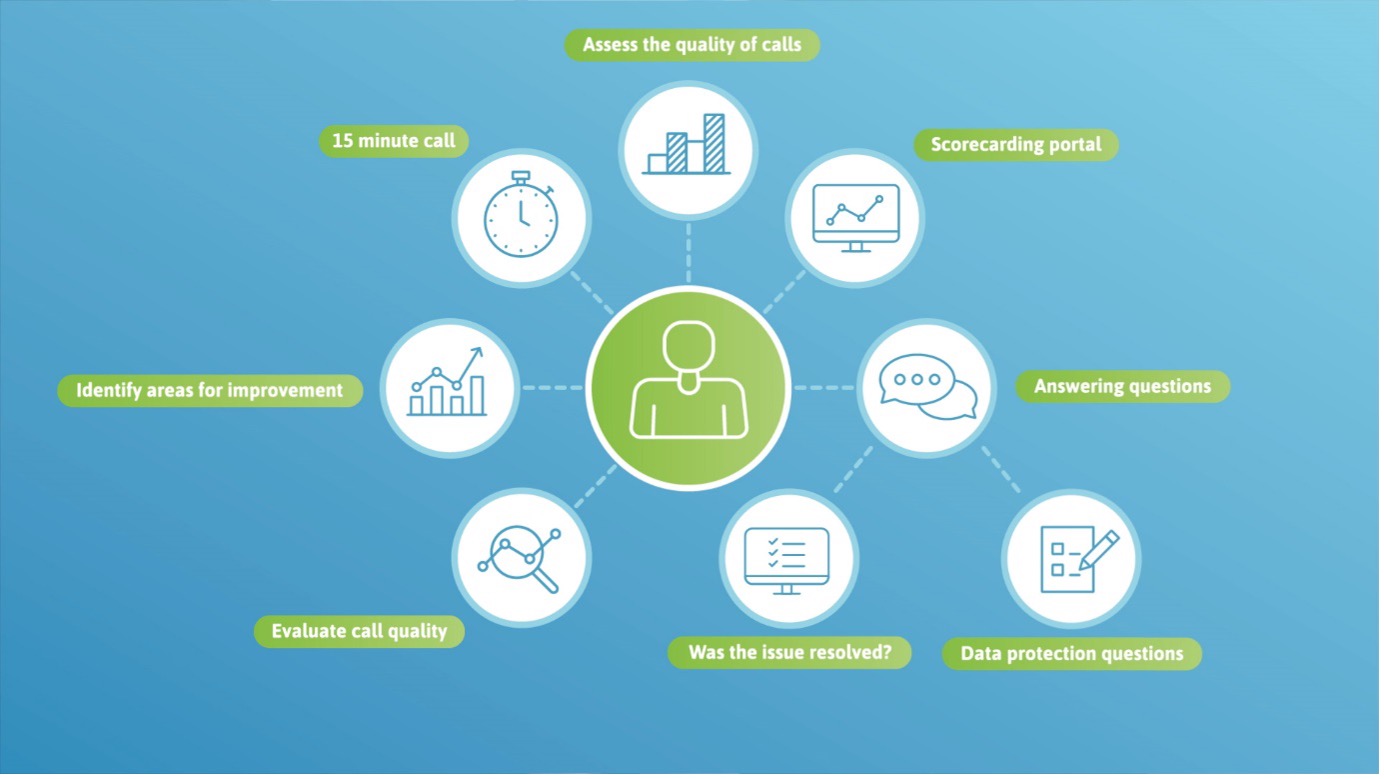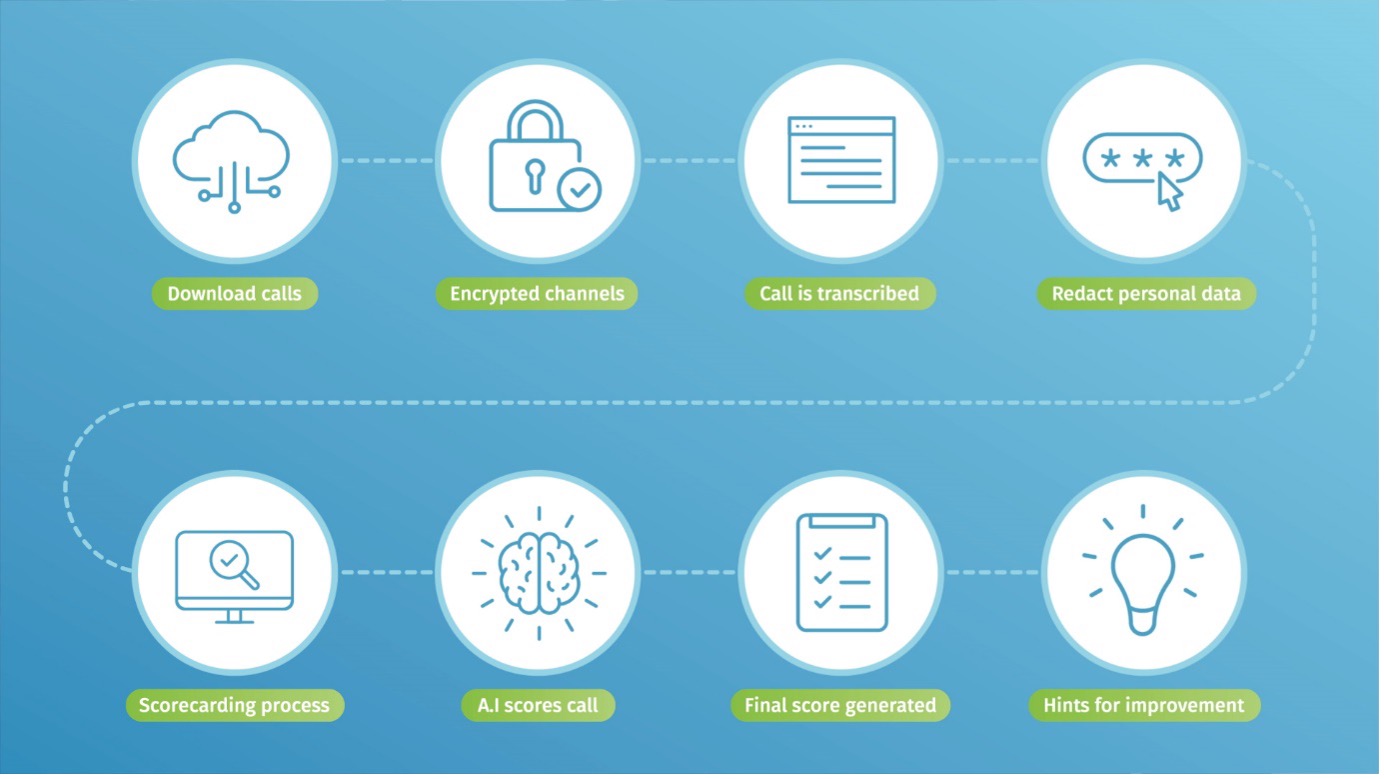coeo UK: successful integration of AI and human expertise
Artificial Intelligence (AI) is making significant strides in transforming the collections sector, offering innovative solutions to enhance operational efficiency and improve customer interactions.

Group Editor of Shard Financial Media, which encompasses the Credit Strategy, Reward Strategy, TRI and FSE brands.
 Michal Lodej
Michal LodejGroup Editor of Shard Financial Media, which encompasses the Credit Strategy, Reward Strategy, TRI and FSE brands.
With AI technologies, collection agencies can streamline many of their standard processes such as risk assessment and customer engagement, leading to more effective outcomes.
However, beyond its operational benefits, AI also plays a crucial role in supporting agent development within the collections sector. While AI can automate many repetitive tasks and decision-making processes, its true value lies in complementing human expertise rather than replacing it entirely. By leveraging AI tools, collection agents can gain valuable insights and support to enhance their performance and effectiveness.
AI-driven analytics provide agents with real-time feedback and personalised training opportunities based on data-driven insights. This enables agents and management to continuously improve their skills, adapt to changing circumstances and deliver better outcomes for both clients and customers. Ultimately, the symbiotic relationship between AI and human agents ensures that innovation in the collections sector not only boosts efficiency but also fosters professional growth and development among frontline staff.
coeo UK are taking a centaur approach to implementing AI. The mythical horse-human hybrid analogy refers to dividing activities between team-led members and AI. Delegating specific tasks to the machine and others to the human. Work is therefore part human, part AI.
Commercial director Ben Calvert says: “What we’re trying to do is not replace any of our workforce, but augment their experience by removing the repetitive, time-consuming duties and allowing the intelligence to be utilised in the best way.
“For instance, by automating processes such as agent audits, AI provides immediate feedback based on scorings of recorded transcripts. What that allows is our QA team to do is address any issues promptly and offer personalised and data-driven training to agents rather than trying to find the errors themselves.”
coeo UK’s traditional QA process
In the call centre the team handles calls daily, but ensuring the quality of all interactions is crucial to optimise customer experience. We use our QA agent to assess the quality of calls. They use a bespoke questionnaire and scorecard in a system we’ve designed called the QA portal. The QA agent answers specific questions related to one of the calls our agent has taken, such as:
· Did the agent ask the correct number of data protection questions.
· Was the customer’s issue resolved effectively?
Each question helps evaluate the call’s quality, and it also identifies any potential areas for improvement.
This entire process, from assessment to feedback, takes roughly 15 minutes per call. Allowing for a sample set large enough to be representative of coeo’s entire customer base. The scorecards aren’t just numbers, they serve as training prompts for coeo’s agents to help identify and resolve issues. The feedback has been used overtime to improve agent performance in their call centre. So, with the QA portal and diligent QA agents, every call scored becomes an opportunity for improvement.
Breaking new ground through AI
In the quest for efficiency and accuracy, coeo UK has identified a ground-breaking approach to scaling the volume of quality assurance assessments. Recognising a significant benefit in scaling QA efforts by harnessing the power of artificial intelligence, coeo UK can now assess 100% of all interactions.
Utilising AI algorithms, every interaction can be scored ensuring a comprehensive evaluation process. Additionally, they collaborate closely with the AI system to calibrate its assessments, ensuring accuracy and reliability. The QA team will work hand in hand with the AI, fine tuning its algorithms to align with their quality standards.
Furthermore, this collaboration allows them to spot outliers within a wider set of data. This means they can identify and address issues more effectively, improving overall performance and customer satisfaction. With this innovative approach, they are poised to elevate their QA process to new heights by leveraging this symbiotic relationship between AI and people driven aspects of the process. Here it is broken down into eight simple steps.
Step 1: The call is securely downloaded from the contact centre.
Step 2: It is then sent to our on-premise data centre using encrypted channels.
Step 3: The call is transcribed using a local speech-to-recognition model.
By handling transcription internally, they ensure not only greater accuracy, but also 100% security of customer data.
Step 4: Any personally identifiable information is redacted from the transcript using another on-premise AI model trained to identify over 50 parameters.
Step 5: Utilise large-language models to perform score carding process.
Step 6: Anonymised transcripts are then sent to an external AI model, which validates a series of questions against it. Just like a standard score carding process.
Step 7: Based on the AI responses, the interactions are scored and then it presents a final score for the agent interaction with the customer.
Step 8: Finally, qualitative feedback is provided, offering direction to the agent and management for improvement based on direct suggestions from the AI model.
In the contact centre every call isn’t just handled, it’s now optimised for success, ensuring the best possible experience for our customers.
The Impact and Benefits of AI in QA
The integration of AI in QA processes yields numerous benefits, including:
· Scalability: AI enables the assessment of a higher volume of interactions, ensuring comprehensive QA coverage.
· Accuracy: AI-driven evaluations reduce human errors and biases, enhancing the reliability of assessments.
· Efficiency: Automation of repetitive tasks streamlines QA processes, allowing human experts to focus on strategic initiatives.
· Proactiveness: AI facilitates proactive issue identification and resolution, leading to improved performance and customer satisfaction.
Identifying vulnerable stakeholders
Alongside the many benefits described in AI adapted QA process, it can also play an instrumental role in identifying vulnerable customers and agents in several ways:
1. Sentiment Analysis: AI-powered sentiment analysis tools can analyse the tone and language used in customer interactions to detect signs of distress or vulnerability. For example, changes in speech patterns, emotional cues, or the use of specific keywords can indicate a customer’s vulnerability.
2. Behavioural Analysis: AI algorithms can analyse customer behaviour patterns, such as missed payments, frequent inquiries about financial hardship programmes, or irregular transaction patterns, to flag potentially vulnerable customers.
3. Speech Recognition: AI-driven speech recognition technology can transcribe and analyse customer-agent interactions in real-time. By detecting variations in speech patterns, hesitation, or unusual responses, AI can identify situations where a customer may be experiencing distress or vulnerability.
4. Risk Scoring: AI models can assign risk scores to customer profiles based on various factors, including financial indicators, demographic information, and past interactions. High-risk scores can indicate potential vulnerability, prompting further investigation or intervention from agents.
5. Agent Performance Monitoring: AI-driven QA tools can monitor agent performance metrics, such as call duration, customer satisfaction ratings, and compliance with regulatory guidelines. Significant deviations from standard performance metrics may indicate that an agent is struggling or experiencing difficulties, warranting additional support, or training.
6. Predictive Analytics: AI-powered predictive analytics can forecast customer behaviour and identify patterns associated with vulnerability. By analysing historical data and customer attributes, AI models can predict which customers are more likely to encounter financial difficulties and require proactive intervention.
By leveraging AI in QA processes, organisations can proactively identify and support vulnerable customers and agents, ultimately enhancing customer satisfaction, reducing risk, and fostering a culture of empathy and support within the organisation.
Calvert concludes: “The utilisation of AI in QA represents a paradigm shift in the finance sector, optimising processes and enhancing outcomes for all stakeholders. By embracing AI as a complementary tool, financial institutions can unlock new opportunities for innovation and growth while preserving the invaluable role of human expertise in decision-making and customer engagement. That’s how we’ve use artificial intelligence to improve our processes for the betterment of everybody, including our clients, our staff, regulators, and all key stakeholders.”
Stay up-to-date with the latest articles from the Credit Strategy team
READ NEXT
UK government grapples with bid-rigging risks as CMA trials AI tool
Get the latest industry news









